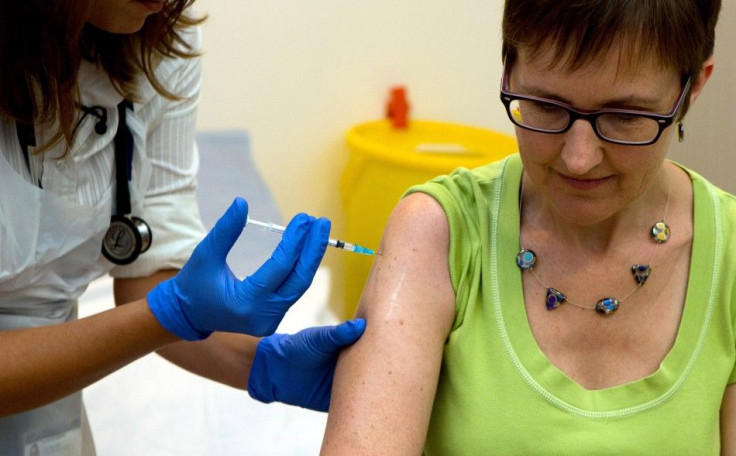Ebola Cure Update: Inhalable, Non-Injectable Vaccine Developed, Passes Animal Tests

A non-injectable and inhalable vaccine against the deadly Ebola has been developed. Researchers said it has shown promise on initial tests on animals.
Scientists from the University of Texas, in an online report of the journal Molecular Pharmaceutics, said pre-clinical studies showed the vaccine protected monkeys for over 150 days in trials. It is so far the only experimental drug believed to provide long-term protection for non-human primates. The monkeys received only a single dose of the vaccine.
Maria A. Croyle, a professor in the College of Pharmacy at the University of Texas at Austin, revealed she had been working for seven years on the inhalable vaccine. She described it as a genetically engineered version of the common cold virus, infused with a bit of Ebola DNA. Specifically, the vaccine fought off the Zaire strain of the illness, the one enveloping west Africa right now.
Researchers said they sprayed the experimental drug up the noses of the monkeys. Nine monkeys were used for the experiment. All nine were saved by the drug. This revelation is deemed statistically significant since the standard method of intramuscular injection saved only 50 percent of the primates used during various Ebola researches. The non-injectable and inhalable drug could potentially prevent future outbreaks.
The drug has yet to start clinical tests on humans. But if successful, the production and management of the vaccine could be easily managed since shipping, storing and distributing it is far easier compared to the traditional, injectable vaccines.
On Friday, the World Health Organisation said there have been 13,567 reported Ebola cases in eight affected countries since the outbreak began, where 4,951 have died. The virus currently has a mortality rate of 70 percent. To date, there has yet to be a licensed vaccine or treatment against Ebola.
Kristina Jonsson-Schmunk, a graduate student of The University of Texas at Austin's College of Pharmacy, who co-authored the paper with Dr. Gary Kobinger and his team at the National Microbiology Laboratory in Winnipeg, said the vaccine's main advantage over the other experimental drugs is its "long-lasting protection after a single inhaled dose" which could certainly "aid in controlling future incidences." Jonsson-Schmunk added this factor is particularly "important since the longevity of other vaccines for Ebola that are currently being evaluated is not fully evaluated."





















